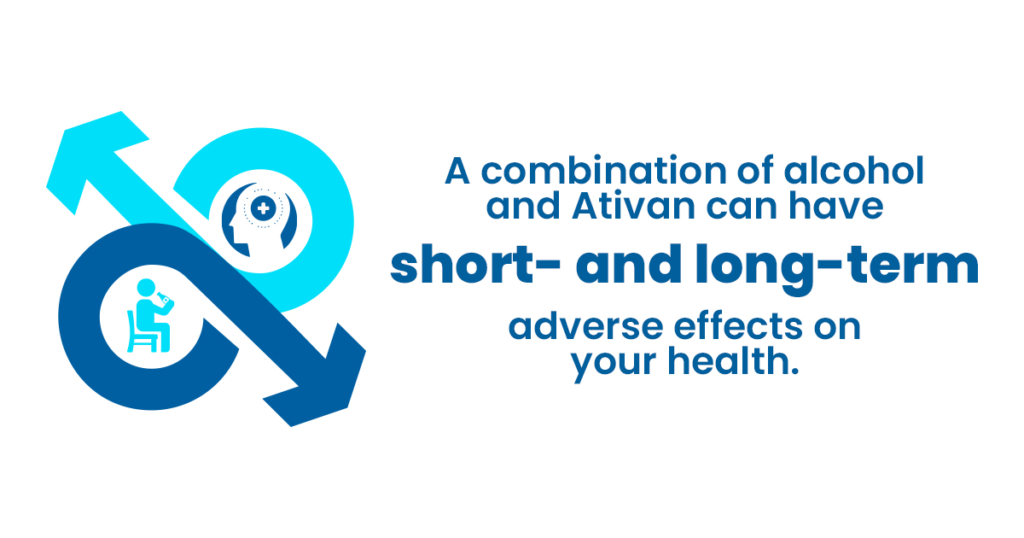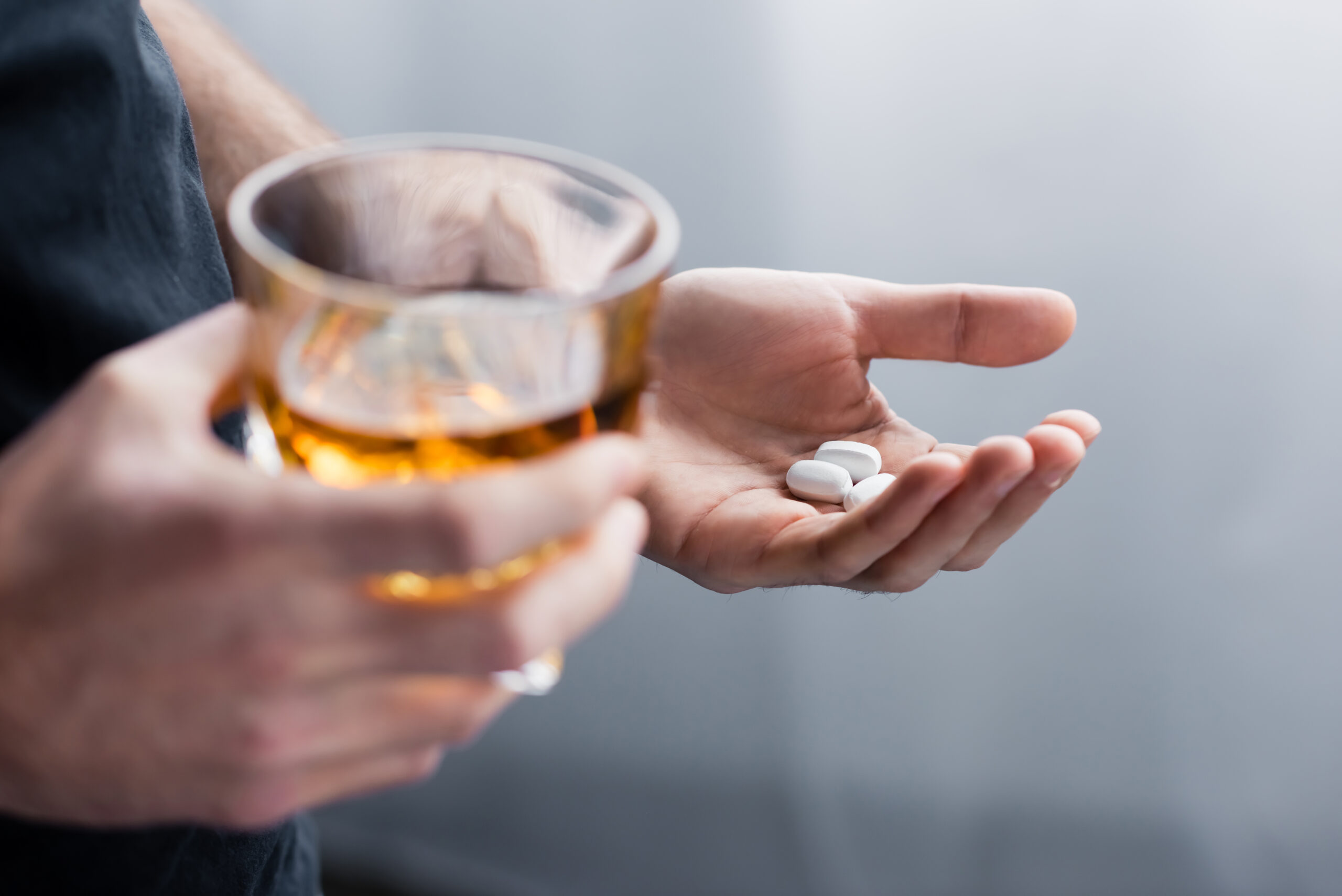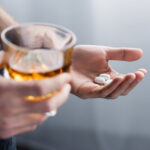Drinking Alcohol While On Ativan: Is It Safe?
According to the National Institute of Mental Health, approximately 2.7 percent of Americans suffer from generalized anxiety disorder (GAD). The most commonly prescribed medication for anxiety and depression is Ativan.
According to the Behavioral Risk Factor Surveillance System, almost 17 percent of people suffer from binge drinking and 6 percent from heavy drinking.
One hundred forty thousand people have died due to excessive alcohol consumption, according to the Alcohol-Related Disease Impact (ARDI) application.
With these statistics, you may be wondering if it is safe to drink alcohol while taking Ativan. This mix can be life-threatening. Read on to learn more.

Key Takeaways
Mixing Ativan and alcohol is extremely harmful since both depress the central nervous system, lowering your heart and breathing rates. When combined, their impacts are doubled.
- Ativan is a benzodiazepine medication that treats anxiety disorder.
- Combining Ativan with alcohol is extremely dangerous and can be deadly in some situations.
- A combination of alcohol and Ativan can have short- and long-term adverse effects on your health.
- Frequent use of alcohol and Ativan can result in substance use disorder (SUD).
If you want help with addiction, connect with our dedicated and experienced medical professionals at (561)328-8627 to learn about the treatment programs at The Haven Detox-South Florida.
Ativan (Lorazepam)
Ativan is a central nervous system depressant (CNS) and prescription benzodiazepine used to treat panic disorders and anxiety or anxiety attacks. Ativan is the brand name for lorazepam.
Moreover, Ativan is a combination of drugs such as; an antihistamine, antidepressant, and propranolol. All of these medications are used to manage panic attacks. However, when you use these three drugs collectively, they become more effective in treating anxiety disorder.
Other anxiety medication makes you sleepy, but Ativan will not make you lazy or tired. It causes less drowsiness but is a little more addictive compared to other benzodiazepines.
Side Effects of Ativan
As with all medications, Ativan comes with side effects. When you use Ativan for a short time, you will have short-term side effects, and frequent use will result in long-term side effects.
Short-Term Side Effects
- Fatigue.
- Headache.
- Dizziness.
- Nausea.
- Mouth sores.
Long-Term Side Effects
- Impaired memory.
- Kidney problems.
- Muscle weakness.
- Blurred vision.
- Insomnia.
Mixing Ativan and Alcohol
Alcohol impairs Ativan’s ability to be metabolized by the body, resulting in high blood levels of the medication when taken alone. When alcohol consumption exceeds a low level (a drink or two), there is total inhibition.
Both Ativan and alcohol slow brain functioning by acting on the same brain chemicals — the neurotransmitters GABA and glutamate. As a result, combining Ativan with alcohol slows cognition, impairs response times, slows speech and movement, and lowers awareness.
Moreover, comprehensive research on the effects of mixing alcohol and benzodiazepines revealed that combining the two significantly reduces the quantity of alcohol required to attain an unsafe blood alcohol concentration (BAC).
Combining a benzodiazepine with alcohol at a BAC of 0.03%, for example, leads to impairment comparable to a BAC of 0.08%, which is at or beyond the legally impaired driving limit in most states.
Why People Combine Ativan and Alcohol
Ativan can cause extreme euphoria when you consume it in large quantities. Combining alcohol and Ativan can boost the calmness that each drug develops.
People who participate in excessive substance abuse may combine both depressants to get this euphoria. However, not all people combine them on purpose; they may drink alcohol regularly, so they continue consuming alcohol without considering its adverse effects.
Side Effects of Combining Alcohol and Ativan
Various medications have severe side effects when combined with alcohol. Even over-the-counter medications such as Benadryl, Robitussin, and Tylenol can cause harmful effects on your physical health when combined with alcohol.
So, Ativan also causes short-term and long-term adverse effects on your health when combined with alcohol.
Short-Term Side Effects
- Nausea.
- Diarrhea.
- Blackouts.
- Drowsiness.
- Slurred speech.
- High blood pressure.
- Distorted hearing or vision.
Long-Term Side Effects
- Pancreatitis.
- Heart disease.
- Nerve damage.
- Liver damage.
- Breathing problems.
- High risk of cancer.
- Impaired coordination and judgment.
So, if you are on medication and also consume alcohol daily, then you should ask your doctor. Combining both depressants can bring various problems in your life.
Make sure to ask your doctor whether it is safe to take Ativan while consuming alcohol or how long you should wait to drink alcohol after taking Ativan.
Overdose Risks
It is possible to overdose on Ativan alone. Still, in most cases, it happens when you combine it with other drugs or alcohol.
In general, the symptoms of benzodiazepines overdose with alcohol range from drowsiness to coma, according to the Food and Drug Administration (FDA).
Additionally, in moderate cases, the signs of Ativan overdose include dysarthria, paradoxical reaction, confusion, lethargy, and drowsiness.
In severe cases, the symptoms include cardiovascular depression, coma, hypotension, respiratory depression, hypnotic state, and death.
Treatment for Ativan and Alcohol Abuse
When you use Ativan and alcohol for a long time, you may develop a substance use disorder (SUD). You need to seek treatment when you develop substance use disorder (SUD). Your health will be severely affected if you don’t get treatment.
Treatment for alcohol misuse and a combination of alcohol and Ativan starts at a rehab facility. Rehab centers have various treatment options and therapies to treat addiction. The most common treatment programs are inpatient treatment and outpatient treatment.
Treatment for any substance addiction starts with detoxification. During the detox process, medical professionals eliminate all of the particles of substance from your body.
Detoxification is usually followed by an inpatient program because, during detox, you may face withdrawal. Sometimes withdrawal is very risky and can cause death, so it is essential to detox under the supervision of an expert healthcare provider.
You must stay in rehab for a limited time during an inpatient program. You will get mental health counseling and cognitive behavioral therapy during this tenure.
Additionally, the staff at the rehab center will keep your addiction triggers away from you, which will help you to overcome addiction promptly.
If you are not at a dangerous level of addiction, your doctor may suggest you go with outpatient treatment. During this treatment, you have to visit a doctor weekly or monthly.
Lastly, you may also get a relapse prevention treatment program at some rehab centers. This program includes various techniques which will stop you from taking drugs.
Frequently Asked Questions (FAQs)
How long after Ativan can I drink alcohol?
Mixing drugs is risky since Ativan and alcohol are CNS depressants, resulting in decreased respiration, excessive sleepiness, coma, and death. If you’ve been prescribed Ativan, you must avoid drinking alcohol while taking it.
Furthermore, if you still wish to drink alcohol, you must wait at least three days following your last dosage of lorazepam. Lorazepam has a half-life of 12 hours. Lorazepam will not be gone until 60 hours following the previous dose since drugs have five half-lives.
Can I have one drink after taking Ativan?
If you’ve been prescribed Ativan, you should avoid drinking alcohol while taking it. While using Ativan, you may be more susceptible to the effects of alcohol.
The acute tiredness and lack of motor function caused by taking Ativan with alcohol can impact decision-making. This raises the likelihood of an individual placing themselves in danger.
Doctors may give Ativan to those with alcohol dependence to help them with alcohol withdrawal symptoms. You should only do this under the supervision of a registered medical expert.
How many drinks can you have with Ativan?
There is no such thing as a minimum or maximum dosage. Everyone’s tolerance level varies, making them prone to overdose at lower or more significant levels.
If you still wish to drink alcohol while taking Ativan, you should consult your doctor. Your doctor will advise you if it is safe to drink alcohol while taking Ativan.
Furthermore, if you wish to live a healthy lifestyle, you should avoid consuming alcohol while using Ativan. It will also allow the treatment to operate more quickly and efficiently.
Addiction Treatment at The Haven Detox-South Florida
Are you or your loved one suffering from addiction? If yes, help is available at The Haven Detox-South Florida. We are a leading rehab center that treats all types of addictions effectively.
Moreover, our treatment programs can be tailored to patients’ needs and conditions. The treatment programs include residential treatment and detoxification.
The drug addictions we treat include alcohol addiction, meth addiction, cocaine addiction, methadone addiction, heroin addiction, etc.
To receive addiction treatment, contact us at (561)328-8627 and get on the path toward a healthier and happy life.











